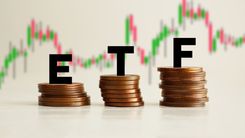

Wir nutzen Cookies für Dinge wie Live-Chat-Support und um Ihnen Inhalte zu zeigen, die Sie wahrscheinlich interessieren. Wenn Sie mit der Verwendung von Cookies durch markets.com einverstanden sind, klicken Sie bitte auf „Annehmen“.
CFDs sind komplexe Instrumente und umfassen aufgrund der Hebelfinanzierung ein hohes Risiko, schnell Geld zu verlieren. 75,2% der Privatanlegerkonten verlieren Geld, wenn sie mit diesem Anbieter CFDs handeln. Sie sollten überlegen, ob Sie wirklich verstehen, wie CFDs funktionieren, und ob Sie es sich leisten können, das hohe Risiko von finanziellen Verlusten einzugehen.
Mittwoch Mai 3 2023 10:44

6 min

At times, the market will move suddenly due to some freak data being released, impacting your trade. Then the margin call comes, or a stop-loss is hit, and you are closed out; only for your trade to return to its initial uptrend. If only you’d not put that stop so close, or not risked such a large amount of equity on a single trade, it could have been a winning one.
Understanding how to make the most of your money is an important trading and investing skill. The amount you deposit has an important bearing on how much you can trade.
When trading on CFDs and other leveraged financial products, you use margin and leverage. Trading on margin essentially allows you to control a larger position. You put down your small percentage, and your broker, in this case, Markets.com, covers the rest.
This is standard industry practice, but it means traders can use less of their capital to open positions.
Trading on margin can result in significant profits. However, it also increases your risk. You may take heavy losses if your trade moves against you.

While trading on margin lets you gain exposure for only a small percentage of a trade’s overall value, having a low overall deposit may actually work against you in the long run due to market volatility
Let’s look at an example with a spread bet account (values are purely indicative for the sake of this example).
With an £100 deposit, you would be able to open a position of about £2,000 of FTSE i.e. the initial margin requirement is 5%, meaning leverage of 20:1 (20×100 = £2,000).
The initial margin to open the account is 5%. The maintenance margin – the amount of equity you require to keep the position open – is 2.5%, or £50 in this example.
If the market declined by only slightly more than s 2.5% (i.e. £50 of your £2,000 position), then you could be facing a margin call.
A margin call is where your broker requires you to invest more cash to cover any potential losses. Failure to meet a margin call could result in your position being closed, i.e. closed out.
Because your deposit was so small, you would be more likely to face a margin call just on a fairly normal amount of volatility. The FTSE 100 does not often more 2% in a day, but over a couple of sessions, it is quite common.


Join the 100.000s that have made markets.com their home for trading. Learn about trading as you grow your portfolio.
More power in our platforms
Wir können derzeit keine Kunden aus Ihrem Land annehmen. Falls Sie diese Nachricht fälschlicherweise erhalten haben, setzen Sie sich bitte mit unserem Support-Team per E-Mail an support@markets.com in Verbindung.
Support kontaktieren
However, if you deposited £500 you could open the same £2,000 FTSE trade, but the market would have to move more like 20% against you before you’d be closed out. A 2.5% move, or £50, against you, would still leave £450 of equity or close to 25% of the position size. This therefore more flexibility to handle intra-day volatility and is particularly important if you are holding positions overnight.
As such, you would be able to ride out more volatility. You would be able to continue trading in the hope of turning a profit once the market turns back in your favour. Of course, the other side of the coin is that if you failed to close a losing position to minimize losses, you could eventually lose all of your initial stake.
With the cushion of more capital, you are protected against market volatility. This is very important, especially if you are planning to trade particularly volatile assets which can change price dramatically from hour to hour.
A higher deposit would potentially allow you to:
Another way to look at this is to trade within your limits. Never risk more than you are willing to lose and never risk too large a percentage of your account. In the example above, instead of using all my account (£100) to get the maximum exposure I can (£2,000), I am using only 10% of my account to open the position.
Good risk management remains important to prevent running losses. The example above is only to highlight how having a buffer in your account enables you to ride out volatility to avoid a ‘winning’ position get closed out early.

Managing your risk is key to becoming a successful trader. While you may be depositing more money, a higher deposit can act as a protection against higher losses for the reasons outlined above.
Be aware, however, that the market can move against you. You should only ever trade if you are comfortable with the risks and if you can afford to take any potential losses.
Do your research and market analysis before committing any capital. Always take the time to monitor your positions closely too.
Risikowarnung: Dieser Artikel gibt nur die Meinung des Autors wieder und dient lediglich als Referenz. Er stellt keine Anlageberatung oder Finanzberatung dar, noch repräsentieren er die Haltung der Markets.com Plattform.Wenn Sie Aktien, Indizes, Devisen und Rohstoffe für den Handel und für Preisprognosen in Betracht ziehen, denken Sie daran, dass der Handel mit CFDs ein erhebliches Risiko birgt und zu einem Kapitalverlust führen kann.Die Wertentwicklung in der Vergangenheit ist kein Indikator für zukünftige Ergebnisse. Diese Informationen werden nur zu Informationszwecken bereitgestellt und sind nicht als Anlageberatung zu verstehen. Der Handel mit Kryptowährungs-CFDs und Spread-Wetten ist für alle britischen Privatkunden eingeschränkt.
Liste aller Werte
Ganze Liste ansehenNeueste
Alles ansehen
Montag, 29 September 2025

6 min

Montag, 29 September 2025

6 min

Montag, 29 September 2025

6 min